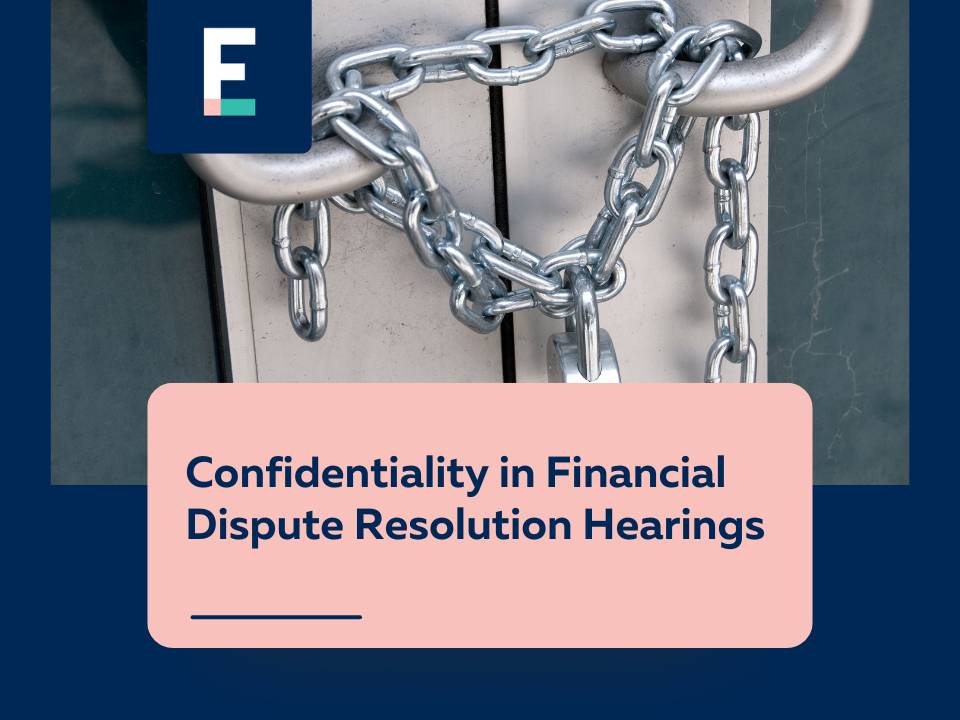Confidentiality in Financial Dispute Resolution Hearings: What Clients Need to Know
9th October 2025

9th October 2025


In the realm of family law, Financial Dispute Resolution (FDR) hearings and private Financial Dispute Resolution (pFDR) hearings play a crucial role in resolving financial disputes between parties. A key aspect of these hearings is the confidentiality of the parties' behaviour and statements. This article explores the implications of this confidentiality for clients, drawing on recent legal developments in the UK.
The confidentiality of what parties say and do during FDR or pFDR hearings is a fundamental principle upheld by the courts. In the case of BC v BC [2025] EWFC 236, Peel J reaffirmed that the behaviour and statements of parties at these hearings are not disclosable in open correspondence. This principle is designed to encourage open and honest communication during the resolution process, without fear of repercussions in subsequent proceedings / hearings.
The confidentiality of FDR and pFDR hearings is supported by the Family Procedure Rules and Practice Directions. Specifically, paragraph 6.2 of Practice Direction 9A outlines the limited exceptions to this rule, which include bare factual matters such as attendance, the identity of the evaluator, and the location and duration of the hearing. The words and conduct of either party during the pFDR should remain confidential to preserve the integrity of the process.
For clients, the confidentiality of FDR and pFDR hearings means that they can engage in the process with the assurance that their actions and statements will not be used against them at a future date. This protection is crucial for fostering a cooperative environment where parties can negotiate and reach settlements without the fear of their behaviour being scrutinised or criticised later.
Breaching the confidentiality of FDR or pFDR hearings can lead to significant legal and financial consequences. In BC v BC, the husband's attempt to disclose the wife's behaviour during the pFDR was deemed impermissible, as it implied criticism and risked costly satellite litigation. Such breaches not only undermine the process but also result in unnecessary legal expenses, as evidenced by the £37,000 incurred in dealing with the wife's application.
The confidentiality of party behaviour at FDR and pFDR hearings is a cornerstone of the financial dispute resolution process in family law. It ensures that parties can participate in these hearings with confidence, knowing that their actions and statements will remain private. Clients should be aware of this protection and the potential risks associated with breaching confidentiality, as highlighted in recent case law. By understanding these principles, clients can better navigate the complexities of financial dispute resolution and work towards amicable settlements.
Jamie Beland & Stephanie Glover

Why Choose Us?
Reasons why clients choose Fenton Elliott to represent them and get the results they expect.
More about us
Contact Us Today
If you are looking for employment or family law advice we can help. We will respond quickly to all enquiries.
Free enquiry